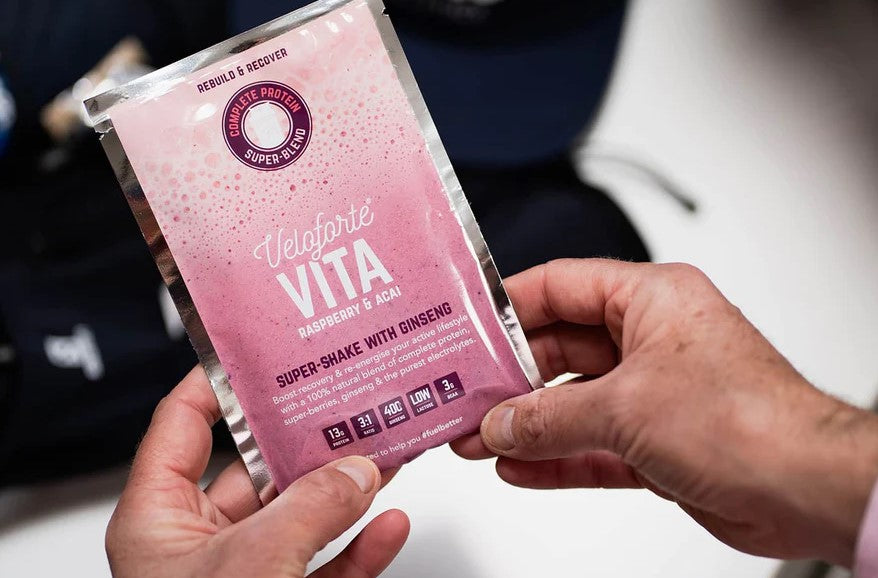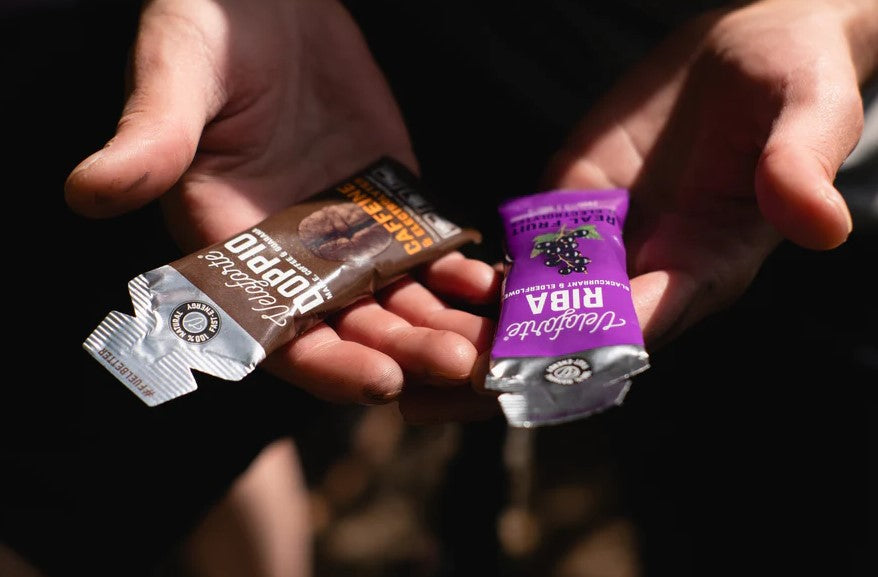6 Alternatives to Protein Powder You’ll Actually Enjoy

Protein is an essential part of a healthy balanced diet. As the body’s building blocks, proteins play a vital role helping to grow new cells, building and repairing muscles, boosting immunity and generally keeping us healthy.
Getting adequate protein is even more important when you spend a lot of time on the bike, in the gym, running or any kind of training. But how do you ensure you’re getting enough, particularly if you don’t fancy guzzling traditional powdery protein shakes all day?
The good news is that if you want an alternative to protein powder, there are plenty of ways to fulfil your daily needs.
How much protein do we need?
The recommended daily amount of protein for adults in the UK is 56g for men and 45g for women. In the real world that looks like one and a half servings of chicken or three to four servings of tofu. However, if you exercise regularly, you may need to eat more to kickstart your recovery.
The American College of Sports Medicine (ACSM) recommends people who take part in vigorous physical activity have around 1.2 to 2g of protein per kg of bodyweight a day – so if you weigh 75kg, that’s between 90g and 150g of protein.
In an ideal world we’d get the majority of protein through our diet, eating foods such as lean meats, fish, eggs, dairy, pulses, nuts and beans. In reality though, there isn’t always time to whip up an omelette for breakfast or a chicken dinner after a workout.

And sometimes when you’ve finished a particularly tough or intense training session, the thought of eating anything makes you a bit green around the gills. That 30 minute window after exercise is the ideal time to reap those recovery boosting benefits — so how can you be sure to refuel effectively?
That’s where protein shakes and supplements come in.
Often providing around a 20g hit of protein in one drink, shakes are a convenient way to make sure you’re meeting your macronutrient requirements with minimum fuss. But what if you just don’t like them?
From the unnaturally sweet taste to GI distress and artificial ingredients, here are some of the reasons why protein shakes might not be for you – and the delicious natural alternatives to protein powder you can try instead.
Problems with traditional protein powder
1. Taste and texture
While some people enjoy the taste of protein powder, others can’t stomach the grainy, powdery texture or the overly sweet, artificial flavours used in an attempt to make the palatable.
2. Artificial ingredients
Not all protein powders are created equal, while some have added vitamins and nutrients, others use artificial sweeteners and sugar to make them drinkable. This can result in excess calories, not to mention unwanted sugar crashes.
3. Bloating or stomach upset
People who have trouble digesting lactose can find they get stomach issues with milk-based protein powders, including gas, bloating and GI distress. If this is you, plant-based protein might provide a more palatable alternative.
Natural alternative to protein powder
So what is an alternative to protein powder if you want to ensure the fuel you’re consuming is as natural and nutritionally beneficial as possible?
If you struggle with the artificial taste or GI issues caused by traditional shakes, Veloforte’s all-natural Recovery Protein Shakes are designed to give you all the benefits – including convenience and portability – without the downsides.

Veloforte’s Vita superberry and ginseng blend, made with low-lactose whey protein, is gentle on the tummy so bloating isn’t an issue. Our plant-based Nova is perfect if you’re looking for a way to get your vegan post-workout recovery done right. The banana, cocoa and maca shake uses a stomach-friendly blend of pea, brown rice and pumpkin protein.
Both contain the optimal 3:1 carbs to protein ratio to aid recovery, with around 23g of protein when mixed with fresh milk, plus natural carbohydrates to replenish energy stores and natural electrolytes to replace those lost through sweat. Enriched with real fruit and naturally occurring sugars, they taste delicious, too – no cloying sweetness here.
If you prefer to eat rather than drink your protein but still want something you can take to the gym or out on a run or ride, try Veloforte’s hazelnut, coffee and cocoa Mocha protein bar. Or the apricot, almond and fennel Forza protein bar containing 10-12g of complete protein from all-natural sources.

Cheaper alternative to protein powder
If you want to increase your protein intake from real food, there are plenty of cheap and healthy natural protein sources available, too. Such as peanut butter, eggs, nuts and seeds.
Try the following protein powder alternatives for size:
1. High-protein smoothies
Add nut butter, oats or a high-protein yoghurt to a homemade fruit smoothie to up the protein content and help your body repair and recover after a workout. You’ll also get the additional vitamins and minerals provided by the fruit.

2. Hard-boiled eggs
With up to 8g of protein per egg, hard-boiled eggs are a great, portable, protein-rich snack. To get your carbohydrate and protein mix in post workout, try mashing a hard-boiled egg on a slice of wholemeal toast or have an egg sandwich, scrambled or poached eggs on toast. You could also try chicken, salmon, houmous or any other lean protein source on half a bagel.
3. Greek yoghurt and fruit
Greek yoghurt tends to have less sugar and more protein than regular yoghurt – around 10g protein per 100g pot. Stir in fresh fruit, oats, seeds, honey or granola for added carbohydrates.

4. Chocolate milk
Yes, really. Chocolate milk blends easily digestible carbs, around 8g of protein, electrolytes and fluid in one serving, making it one of the best natural alternatives to whey protein powder. Big warning: It can be high in sugar though, so look for lower sugar alternatives.
5. Apple slices with nut butter
Dip slices of apple in nut butter to replenish your glycogen stores and up your protein intake after training. Peanut butter is usually highest in protein with around 7-8g per two tablespoons. Dairy-free and vegan, this is one of the best protein powder alternatives if you’re following a plant-based diet.
6. Overnight oats
Protein rich and wallet-friendly, mix oats with your choice of milk, fruit and nuts or seeds and refridgerate overnight for a quick and healthy breakfast or snack.There’s around 6g of protein in a standard serving of oats and you’ll up that by 2 or 3g by adding milk or yoghurt.

Avoid processed, flavoured oats as they usually contain added sugar and artificial ingredients, instead, opt for rolled oats or steel cut oats (available from health food stores) which are slightly higher in fibre and lower GI to help keep blood sugar stable.
Stock your protein stores
If you’re looking for the best alternative to protein powder then, you’ve got plenty of choice, from Veloforte’s all-natural Protein Recovery Shakes and protein bars to options you’ve probably already got in your fridge. So get experimenting and find the natural protein source that works best for you.

